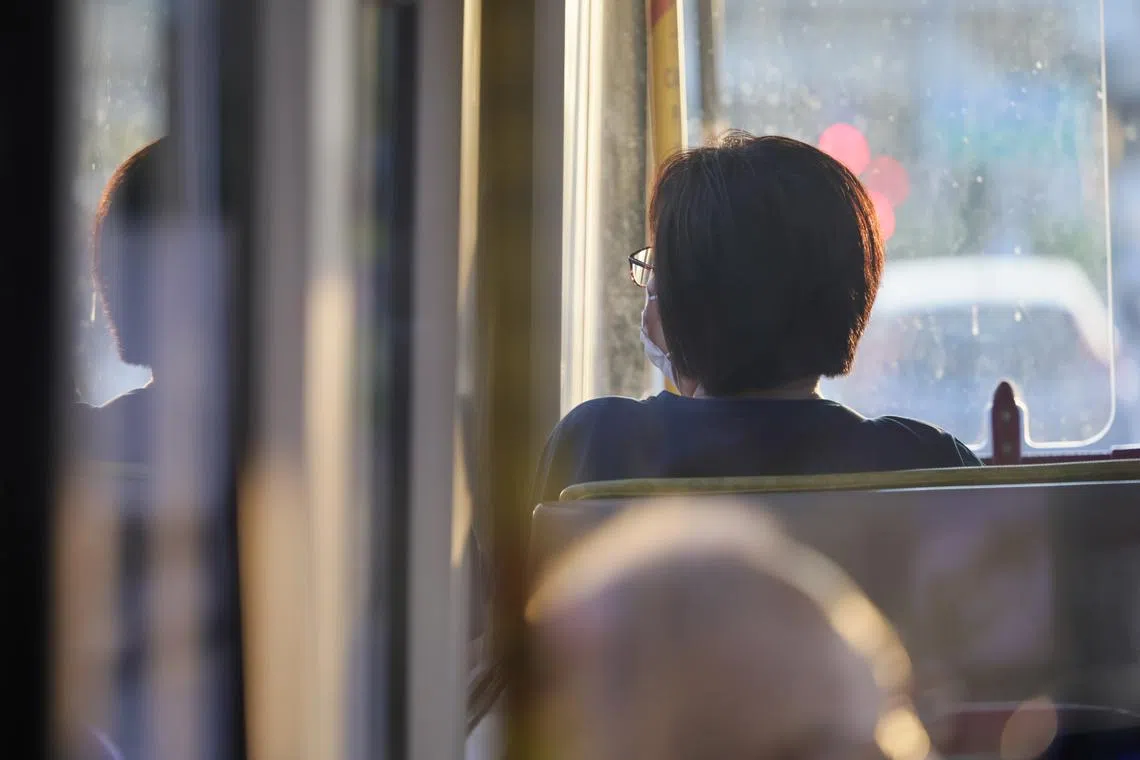Help just a call or text away: National mental health helpline, textline ready by mid-2025
Sign up now: Get ST's newsletters delivered to your inbox

The new service is in line with the nation’s efforts to make mental health a key priority.
ST PHOTO: GIN TAY
Follow topic:
SINGAPORE - A new National Mental Health Helpline and Textline service offering psychological first aid for people facing mental distress will be operational by mid-2025.
Via a phone call or text, trained counsellors will address common mental health concerns and offer a listening ear, along with brief counselling for those dealing with challenging situations or displaying mild symptoms of mental health conditions.
Those who need more extensive or long-term mental health support will be referred to relevant mental health services, said Dr Janil Puthucheary, Senior Minister of State for Health and Digital Development and Information, on Sept 16.
He was speaking at the Young Singaporeans Conference held by the Institute of Policy Studies (IPS).
He said the service will include a textline hosted on mindline.sg because some individuals may prefer seeking help via text. Details, such as whether the hotline and textline will be operational 24/7, are not yet available.
The new service is in line with the nation’s efforts to make mental health a key priority.
Singapore launched a national mental health and well-being strategy in October 2023
A new National Mental Health Office comprising officers from the Ministry of Health (MOH), Ministry of Social and Family Development and Ministry of Education will be fully established by 2025. It will oversee the implementation of the strategy and future mental healthcare developments.
Speaking at the conference, Dr Janil pointed to data that reflected worrying concerns about youth mental health.
While the recent 2023 National Population Health Survey
It was encouraging, however, that there was an increase in the proportion of Singapore residents who were willing to seek help from healthcare professionals, from about 57 per cent in 2022 to about 63 per cent in 2023.
Making it easier for young people to access mental health services will facilitate early detection and intervention.
Currently, there are over 200 mental health touchpoints in various forms, including hotlines, text or e-mail platforms, digital resources and in-person services, which can be quite overwhelming for someone who needs help.
MOH is thus working to simplify this by designating first-stop touchpoints that will direct individuals to the most appropriate services based on their needs, said Dr Janil.
The first-stop touchpoints will include a number to call or text, a digital platform with online resources, and a physical location to seek help.
Dr Janil said MOH is also working with relevant agencies to streamline existing hotlines that offer similar services.
For those who prefer personal interaction, MOH will build up and promote in-person first-stop touchpoints through the Community Outreach Teams (also known as Crest) and Chat, a national youth mental health outreach and assessment service.
Specifically, the Youth Community Outreach Teams (Crest-Youth) conduct outreach to raise awareness of mental health issues and identify youth who need support early. Young people can also approach Chat to receive mental health checks, intervention and outreach services.
A broad suite of strategies is called for to ensure the right care is delivered to individuals based on their needs because not every setback or stressor that people face in life results in a mental health condition, and not all cases of poor mental health require medical intervention, Dr Janil said.
Dr Clara Lee, a research fellow at the IPS social lab, which conducts research on social perceptions, attitudes and behaviours, said the new hotline would be of help, but it remains unclear if the calls will be filtered according to the callers’ age groups to ensure the help is age-appropriate.
For instance, Chat resources are geared towards youth, while the Tinkle Friend helpline is for all primary-school-age children in Singapore, she said.
Dr Lee, who moderated the dialogue between Dr Janil and young people at the conference, said the help available to callers would be crucial.
During the dialogue, the Government’s progress on raising the number of public-sector psychiatrists and psychologists by about 30 per cent and 40 per cent, respectively, by 2030 was brought up, as well as when the increase will lead to shorter waiting times for patients.
Dr Janil said the work on increasing the number of mental health professionals has started, but it will take several years to reach the target.
“Ultimately, the issue of capacity and waiting times is not going to be solved primarily by just an increase in the number of psychiatrists and psychologists,” he added.
“It’s about making sure that the services are right-sited, so that the Institute of Mental Health is not the first and only touchpoint. It’s not the place you go to, and then you funnel out (the referrals) from there.
“Hence, increasing the number of community services, increasing the number of other healthcare services that provide psychological services and hopefully reducing the need for these types of crisis interventions, is a key part of our strategy.”
Dr Janil also responded to feedback about duplication of mental health help and services in the Singapore landscape, and how more could be done to synergise the ecosystem.
Referencing the tiered care model for mental healthcare, which will organise services according to the severity of an individual’s needs across four tiers, Dr Janil said he hopes that community providers will use the framework to think through what services and capabilities they can offer within the ecosystem.
They can also think through how they can standardise their referral and information sharing processes so that if their clients are referred elsewhere within the system, their information can accompany them.
Providers can also think about what capabilities and services they can offer so they can accept referrals from other parts of the ecosystem, Dr Janil added.

